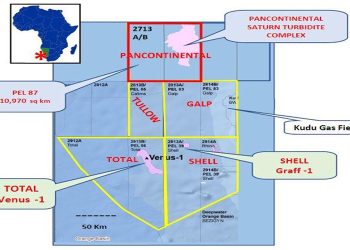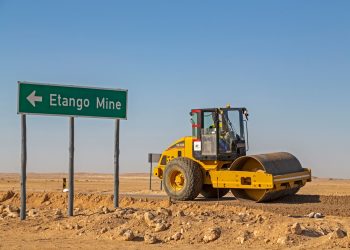
The construction of NamPower’s 100 MW Sores |Gaib Power Station near Rosh Pinah is set to create more than 300 direct jobs, with the project’s contractor committing to spend at least N$356 million on local businesses and skills development.
Speaking at the groundbreaking ceremony, NamPower Managing Director Kahenge Haulofu said the project would prioritise local employment and support Namibian enterprises through a dedicated local content allocation.
“During the construction phase, we expect to create over 300 direct jobs, with the aim to employ local labour and thereby promote skills development.
In addition, the Engineering, Procurement and Construction (EPC) contractor has made a commitment to spend 25% – which amounts to N$356 million – of the contract price on local content,” Haulofu said.
The power plant will be built in partnership with the EPC contractor, a joint venture between China Jiangxi International Corporation and China New Energy Development. Haulofu emphasised that the local content spend is a crucial part of ensuring that Namibian businesses benefit directly from the project.
The Sores |Gaib Power Station, which will become Namibia’s largest renewable energy facility to date, is part of NamPower’s broader plan to strengthen the country’s generation capacity.
It joins a list of ongoing and completed projects, including the 20 MW Omburu Solar PV Plant, the 54 MW Anixas II, a 40 MW Biomass Power Project, and a 54 MW Battery Energy Storage System.
The project is partly financed through a N$1.3 billion loan from the German development bank KfW, secured under an inter-governmental agreement.
“This loan was facilitated within the framework of the inter-governmental agreement, underscoring the enduring partnership and cordial relations between the Government of Namibia and the Government of the Federal Republic of Germany,” Haulofu said.
He added that the Sores |Gaib Power Station marks a significant step in Namibia’s clean energy transition.
“This is more than just a power station. It represents a turning point in the country’s clean energy journey. Once completed, the plant will contribute meaningfully to energy independence, climate resilience, and economic development, delivering clean power to Namibian households and industries for decades to come,” Haulofu said







